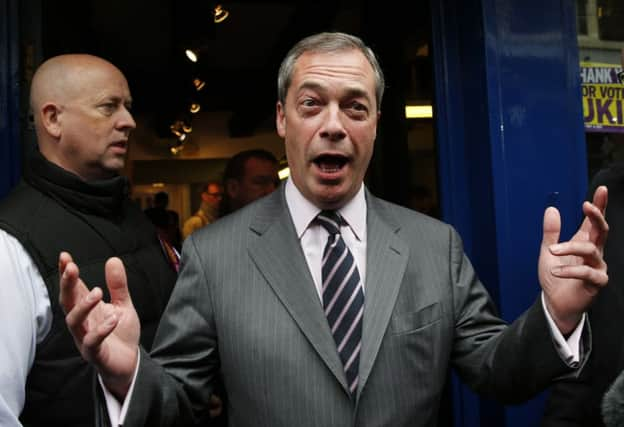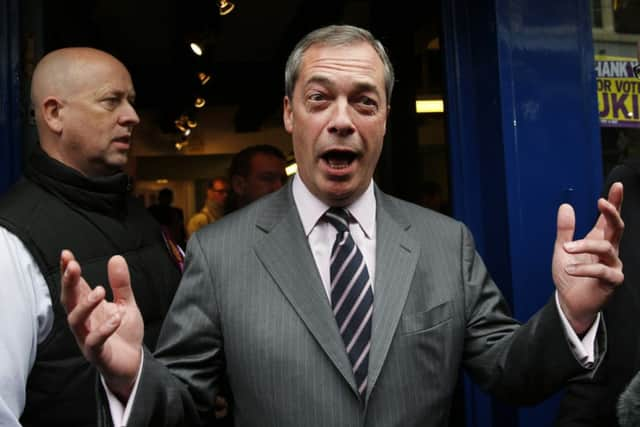John Curtice: Ukip support set to continue


The party of ‘fruitcakes’ and ‘loonies’ as David Cameron once described it, now has far further evidence with which to convince voters that, south of the border at least, it represents a credible alternative to voting Conservative or Labour.
Yet at the same time the by-election underlined the scale of the challenge the party faces if it is to realise its ambition of holding the balance of power at Westminster next May - and thereby be in a position to demand a referendum on Europe referendum from whoever hopes to occupy 10 Downing St.
Advertisement
Hide AdAdvertisement
Hide AdAll the Westminster parties have been trying to convince voters that although UKIP topped the poll in this May’s European election, voting for the party in next year’s Westminster election would be a wasted vote. The relentless logic of the first-past-the-post electoral system would see to that. Meanwhile the Conservatives in particular have warned that a vote for Nigel would simply ensure that it was the Europhile Ed who would end up running the country for the next five years.


CONNECT WITH THE SCOTSMAN
• Subscribe to our daily newsletter (requires registration) and get the latest news, sport and business headlines delivered to your inbox every morning
But now UKIP have demonstrated that it can win Westminster seats. That, together with the favourable publicity that by-election gains inevitably generate, helps to win over voters. Support for the party reached new heights in the wake of its initial victory in Clacton last month, and now this latest success will help sustain that support through the Christmas holiday period and beyond.
Consequently even if UKIP support, which currently stands at 15%, does get squeezed somewhat during the next six months, it now looks highly unlikely that it will fall all the way back to the 3% the party won in 2010.
However, both in Rochester and in Clacton the party only succeeded in winning the seat in the special circumstances of a sitting MP defecting and then opting to defend their seat in their new colours. Both Mr Reckless and Mr Carswell brought with them personal support that helped boost UKIP’s vote. The party has yet to demonstrate it can win a Westminster seat when it does not enjoy that advantage.
Moreover, in contrast to the result in Clacton, where Mr Carswell secured a 35 point lead, it is by no means clear that Mr Reckless’s decision to swop sides has made it easier for him to defend his seat next May. Voters are undoubtedly more willing to vote UKIP in a by-election than in a general election. Thus, at just seven points, Mr Reckless’s lead is not of a size that he can be wholly confident of winning again in six months’ time.
The Rochester result is thus unlikely to help Nigel Farage persuade yet more Tory MPs to jump ship. Even if he does, it remains far from clear just how successful UKIP can be in turning even a 15% share of the vote into significant numbers of MPs at Westminster.
• John Curtice is Professor of Politics, Strathclyde University
SCOTSMAN TABLET AND IPHONE APPS